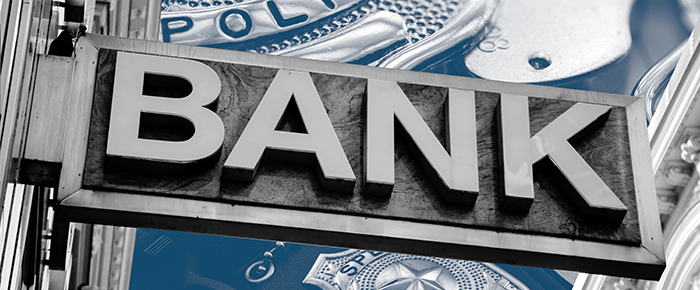
When police officers start their careers at academies, they are told they are different from day one. As they begin serving their communities, they realize the role makes them stand out and do work most people would not dream of doing. A career in law enforcement (LE) equips officers with immeasurable skillsets and abilities not normally seen in the private sector.
Cut to modern-day banks and their fraud and anti-money laundering (AML) teams. These teams are staffed, in part, by a very small group of former police officers who have worked the other side of “the fraud fence.” Twenty years ago, these former police officers would have never planned to work in fraud and AML teams. Many police officers were more drawn to drug enforcement, intelligence, homicide, robbery investigations and special weapons teams rather than the murky waters of financial crimes.
But in this challenging and perplexing century, that tide has turned. Fraud and AML investigations have become increasingly important as they are at the forefront of confronting human trafficking, terrorist financing and the mass defrauding of entire communities. This is in addition to their emerging and critical roles in drug interdiction and intelligence gathering, making these teams catch the attention of many industries and government agencies. Banks rely heavily on these teams to ensure their accounts and transactions survive the watchful eye of government regulators as well as to maintain their corporate reputation. In short, these teams matter because banks want to do the right thing.
As with some careers, there comes a time when the next one calls out—and in this case calls out loudly. For a select few elite fraud officers, the jump over the great divide is a thrilling one. Every year, a small group of fraud cops leave one calling to join a new one. That new calling is to continue fighting the war on fraud and money laundering from a different position but on the same battlefield. In a world that is getting smaller, where financial transactions and fund reallocation are becoming more sophisticated, the need for specially trained former fraud cops is growing stronger.
Cultural Divides
When considering transitioning to a banking environment, officers must be prepared for change and they must be prepared to change fast
When transitioning from policing to banking, there are potentially daunting cultural divides. Police officers come from heavily regimented organizations that are modeled after the military. Chain of command, command and control, and continual communication up lines of rank are the staple of LE communities. Codes of conduct, discipline boards and committees, and a not-so-subtle culture of obedience are also very much on the minds of this small fraternity. When considering transitioning to a banking environment, officers must be prepared for change and they must be prepared to change fast. Coming from an environment where tradition is a heavy motivator to one where innovation and rapid change management rules the day can be both thrilling and difficult. If these fraud cops seek the change, they must be prepared for a wholesale change of perspective. They are going to the far side of the moon.
Simple things like bank organizational charts and associated business flowcharts present unfamiliar complexities for most police officers. The modern-day bank is a labyrinth of lines of business, business flowcharts, sales channels, e-commerce platforms and a list of acronyms that would make a quantum computing team shudder. In short, elite fraud cops will endure an onboarding process that will reengineer their skillsets to serve a new leader and a new organization.
Police officers speak in different ways and use different jargon than bankers. Listening in to intelligence or operational briefings, officers are exposed to a decision-making process that affects the lives and safety of both officers and citizens. These briefings are common and numerous. Going from a severe environment where life-threatening variables exist constantly to one where there are none can present transitioning challenges as well. I once heard a fellow colleague who made the same transition say that after his first week, he sat in nine meetings where loss of life was never considered. “Welcome to the bank,” he said. The focus of the bank is the customer.
The Role of Partnerships
As banking becomes more and more complex so, too, does the need to adjust and perfect fraud and money laundering investigations. The challenges for both former fraud cops as well as existing bank fraud and AML teams are the rapid change in services and the volume of change. By using internal and external partnerships, this mission becomes easier and more successful.
Fraud cops offer banks resourceful, creative, motivated and mission-focused talent that produces deliverables with virtually nothing
Police officers contribute skillsets that were molded from environments where it was common to have a severe lack of resources, personnel and training as well as competing organizational priorities. Police agencies do not consider financial crime a tier-one priority. These agencies focus resources on citizens’ calls for help, crimes against persons, civil unrest and emergency events requiring large deployments of personnel. These significant challenges for fraud cops force them to adjust and retool in order to meet the challenge with little resources. Fraud cops offer banks resourceful, creative, motivated and mission-focused talent that produces deliverables with virtually nothing. Having such few resources requires advanced skills in problem solving and resiliency. Fraud cops rely on informal and formal networks to assist in their functions every single day. In short, banks can import skillsets that were forged in fire into a challenging environment. The benefits are mutual and are well-positioned to improve bank response to financial crime in the long term.
With the continual migration of fraud cops to banks, there is greater emphasis on skillsets and post-policing employment. Banks employ fraud and AML investigators with a wide array of designations and educational levels. Thus, police officers need to retool and integrate with the industry by joining organizations such as ACAMS as well as gaining designations that will prepare them for their duties and potentially a new career.
Sharing a Common Language
However, there is more to consider in the fraud investigations world than police officers transitioning into bank roles and seeking memberships and designations. As public-private partnerships are growing in complexity and in some cases by volume, these two stakeholders must align their overall frame of reference. Having investigators in these partnerships speak a common language, rely on shared methods and research, and have common understandings of fraud and money laundering will further enhance the craft and the effort.
These partnerships are working hard at exchanging data and information along legal- and compliance-sanctioned channels to enhance the fight against financial crime. Whether or not these partners one day operate in common data ecosystems and exchange information at the speed of light remains to be seen. Nevertheless, having police officers consider and embrace the value of ACAMS and other entities will better equip the fight against fraud and money laundering to the benefit of both the customers and the community.










